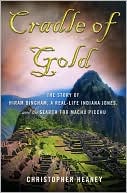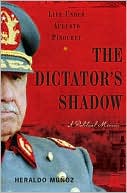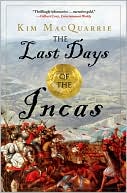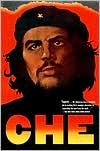The Pinochet Effect: Transnational Justice in the Age of Human Rights
The 1998 arrest of General Augusto Pinochet in London and subsequent extradition proceedings sent an electrifying wave through the international community. This legal precedent for bringing a former head of state to trial outside his home country signaled that neither the immunity of a former head of state nor legal amnesties at home could shield participants in the crimes of military governments. It also allowed victims of torture and crimes against humanity to hope that their tormentors...
Search in google:
What Pinochet's arrest has taught us about transnational justice and international jurisdiction. Foreign Affairs The 1998 arrest of former Chilean dictator Augusto Pinochet in London on charges of genocide and torture by a Spanish judge revealed a new world of transnational justice. This book, by a University of California law professor, is a moving narrative of the unfolding personal, national, political, and legal dramas that drove this still-unfinished transformation. One story is about Spanish courts' expansive jurisdiction and criminal law that made them unusually suited to claim authority over crimes committed elsewhere. Another is of the gathering appeal of universal jurisdiction, which allows states to assert prosecuting power over crimes that disrupt international rights and peace. In the background are the stories of activists and aggrieved peoples of Chile and Argentina who, brutalized by an era of military rule, sought justice through a national accounting of past violent deeds. In layer upon layer of historical detail, the profound transnational character of this episode emerges. In a historical echo of the trial of Adolf Eichmann in Jerusalem, Roht-Arriaza's account of Pinochet in London offers a glimpse of a new and disputed political and legal landscape.
1The beginning12The adventures of Augusto Pinochet in the United Kingdom : a "most civilized country"323The investigations come home to Chile674Argentina : truth and consequences975The European cases1186Operation Condor redux1507The legal legacy of Pinochet : universal jurisdiction and its discontents1708The actors behind the Pinochet cases208
\ Foreign AffairsThe 1998 arrest of former Chilean dictator Augusto Pinochet in London on charges of genocide and torture by a Spanish judge revealed a new world of transnational justice. This book, by a University of California law professor, is a moving narrative of the unfolding personal, national, political, and legal dramas that drove this still-unfinished transformation. One story is about Spanish courts' expansive jurisdiction and criminal law that made them unusually suited to claim authority over crimes committed elsewhere. Another is of the gathering appeal of universal jurisdiction, which allows states to assert prosecuting power over crimes that disrupt international rights and peace. In the background are the stories of activists and aggrieved peoples of Chile and Argentina who, brutalized by an era of military rule, sought justice through a national accounting of past violent deeds. In layer upon layer of historical detail, the profound transnational character of this episode emerges. In a historical echo of the trial of Adolf Eichmann in Jerusalem, Roht-Arriaza's account of Pinochet in London offers a glimpse of a new and disputed political and legal landscape.\ \ \ \ \ From the Publisher"An electrifying account of Pinochet's extradition proceedings, as it played throughout the international community. . . . A 'must' read."—American Society of International Law Newsletter\ "A modern-day version of Hannah Arendt's classic Eichmann in Jerusalem. Although nonfiction, The Pinochet Effect reads like a novel, eloquently recounting the saga and consequences of one of the most important cases of our time."—Michael P. Scharf, coauthor of Slobodan Milosevic on Trial\ "Roht-Arriaza has brought together a great amount of information from both published and other sources. . . . The treatment is both historical and legal, and the multilayered approach produces many dividends."—American Journal of International Law\ "Roht-Arriaza provides a carefully balanced presentation. . . . Her argument sheds light on the dynamics of the role of international law in the transitions to democratic rule, but it always acknowledges the limits of such universal standards across the board unless they find their enforcement at the domestic level."—Choice\ "Skillfully combines, and draws lessons from, personal stories and legal and political analyses. . . . The book's main contribution is its skillful discussion of the transformation of the international legal system; the evolution of the concept of sovereignty; and the expansion, and later reduction, of the notion of universal jurisdiction."—Latin American Research Review\ \ \








